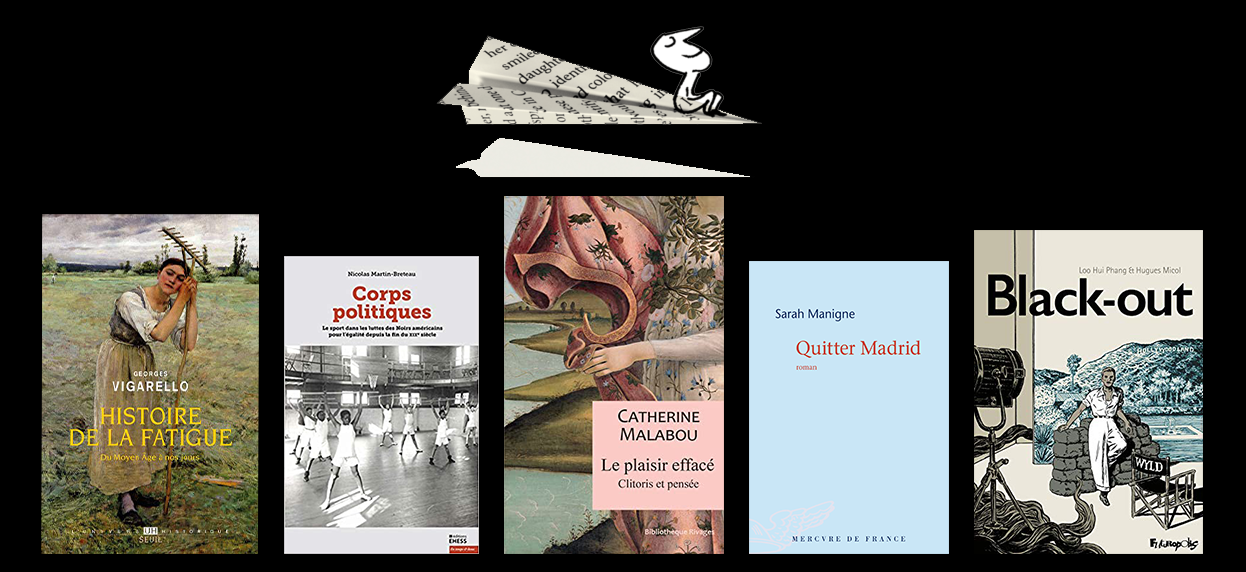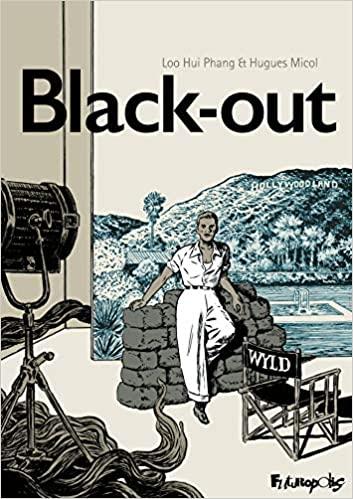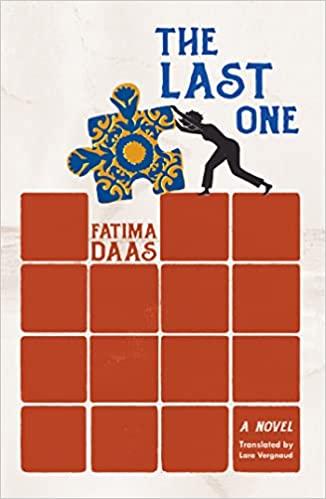French Voices Awards 2021-2 Announced

Established in 2006 by the French Embassy and FACE Foundation, these awards recognize translators and publishers of outstanding works. Since its inception, the program has supported numerous talented writers, and this year’s winners join a fantastic roster of authors published in the collection.
The French Voices Awards are bestowed upon titles with both an identified American Publisher or texts that are not yet under contract with an American publishing house. We are eagerly seeking an American publisher for two titles this session: Loo Hui Phang and Hugues Micol’s Black-out translated by Edward Gauvin and Sarah Manigne’s Quitter Madrid translated by Heather Green. For questions regarding these books, please email us so that we can share more information and a sample translation. For titles from previous session still seeking an American publisher, please go to the following page*.
We want to express our most heartfelt congratulations to all the winners!

FRENCH VOICES GRAND PRIZE FOR NON FICTION
Black-out by Loo Hui Phang and Hugues Micol (Futuropolis/seeking an American publisher, translated by Edward Gauvin)
For a few decades during the Golden Age of Hollywood, Maximus Wyld was all things to all people, but who was he really? Through the life story of this fictional and forgotten figure, a mixed-race actor of African, Latino, Asian, and Native American descent, creators Loo Hui Phang and Hugues Micol spin a glittering fable, onscreen and behind the scenes, of race, gender, and politics in the United States. Cary Grant, Paul Robeson, Ava Gardner, Lana Turner, Lena Horne, Rita Hayworth, Bill Robinson, and more parade through this star-studded procession. Meticulously researched yet contemporary, Black-out offers a frank and modern take on representation and privilege alongside a witty repartee reminiscent of classic movies.

FRENCH VOICES GRAND PRIZE FOR FICTION
La Petite Dernière by Fatima Daas (Les Éditions Noir sur blanc/Other Press, translated by Lara Vergnaud)
“My name is Fatima Daas.” So begins each chapter of Fatima Daas’ debut novel, La Petite Dernière. Through an eponymous character, the author recounts the struggles of a young woman’s attempt to reconcile her homosexuality with her religion. The youngest daughter of Algerian-Muslim parents, “Fatima Daas” is seen as “different” and repeatedly encounters forms of bias for her physical features, her family origins, and her sexuality. Refusing to live up to the family’s “baby girl,” status, she rejects the feminine norms expected of her at the expense of her relationship with her parents. Written in succinct and direct prose, Daas’ novel challenges preconceptions of what it means to be Muslim, North African, female, and lesbian.
(The book was selected at the first 2021 session available here)
FRENCH VOICES AWARDS
Plaisir effacé by Catherine Malabou (Editions Payot & Rivages/Polity Press, translated by Carolyn Shread)
In her new book, distinguished French thinker Catherine Malabou once again engages her characteristic deconstructive approach at the interface of psychoanalysis and philosophy. She focuses on the clitoris as a body part whose importance has been ignored in artistic, cultural, and political depictions of sexuality and pleasure. Malabou aims to disarm this misguided tradition, dispelling once and for all the relics of a theory that represented the clitoris as negative, lacking, and the result of castration. In this interdisciplinary text Malabou incorporates the work of diverse thinkers such as Lacan, Agamben, de Beauvoir and Irigaray while also drawing on the history of ideas, feminism and embodiment, and affect studies. Malabou multi-layered ideas remains clear and accessible, leading Roger-Paul Droit to praise in Le Monde her lucid and concise style.
Quitter Madrid by Sarah Manigne (Editions Mercure de France/seeking an American publisher, translated by Heather Green)
Manigne’s second novel, Quitter Madrid is a fictional story set among real events and paintings. The novel gives voice to Alice, a French art conservator, as she is caught in the 2004 “11-M” train bombings in Madrid. After the attack, Alice returns to the Prado to resume her restoration work on Francisco de Zurbarán’s painting Allegory of Charity. She struggles with the trauma of the bombing and its effect on her relationships with others and art. Zurbarán’s saints, her area of expertise, and their pictorial representations of pain particularly trouble her. Characterized as “a delicate book about invisible wounds” by Amélie Cordonnier in Femme actuelle and longlisted for the 2020 Prix Femina in France, this novel offers a glimpse into how the aftermath of trauma impacts people’s lives and relationships.
Corps politiques. Le sport dans les luttes des Noirs américains pour la justice by Nicolas Martin-Breteau (Editions de l’EHESS/Johns Hopkins University Press, translated by Lucy Garnier)
Bodies Politic investigates the central role that sports have played in the Black community’s struggles for racial justice since the late 19th century. After Reconstruction, members of the Black middle and upper classes created ambitious physical education programs in Washington, D.C., then the largest African American city in the United States. Strong, beautiful bodies were considered decisive in achieving two prerequisites for social integration: building dignity within the Black community and countering racial prejudice more broadly. Through a long-term analysis, this “richly documented” book, as described by Mickaël Correia in Le Monde diplomatique, explores why the body was (and remains) the primary site of African American efforts for liberation, offering a corporeal perspective on the history of American democracy
Histoire de la fatigue by Georges Vigarello (Editions du Seuil/Polity Press, translated by Nancy Herber)
Histoire de la fatigue chronicles the diagnosis – medical, personal, and professional – of fatigue and its development from the Middle Ages to the present. What is fatigue? Is it a pathology that indicates the limitations of one’s psyche, a human condition to which we all fall prey from time to time? Or is it a fundamental incompatibility with the outside world? How did we value and accept fatigue based on the social rank of the sufferer, and how do we do so today? In what sense has the meaning of fatigue evolved alongside the great industrial and economic leaps of our time? How have we calibrated a balance between normality and abnormality? These are just some of the questions that Vigarello, Research Director of the prestigious School for Advanced Studies in the Social Sciences in Paris, addresses in Histoire de la fatigue.
(To view the title selected at the first 2021 session please visit us on this page page)
